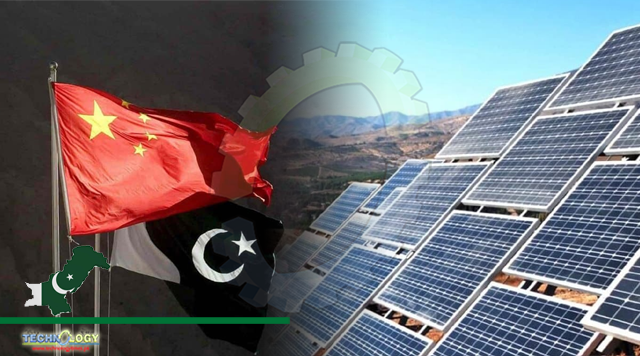China-Pakistan relations were very close. China had the world’s leading technology in clean energy, especially hydropower, wind energy and solar energy.

Pakistan should make full use of China’s experience in clean energy especially hydropower, wind and solar energy to carry out close and extensive cooperation with relevant Chinese enterprises.
China-Pakistan relations were very close. China had the world’s leading technology in clean energy, especially hydropower, wind energy and solar energy. Chinese technology could be transferred to Pakistan without any reservation, and Chinese enterprises were very interested in large-scale investment in Pakistan.
Therefore, Pakistan should make full use of this advantage to carry out close and extensive cooperation with relevant Chinese enterprises, Cheng Xizhong, Visiting Professor at Southwest University of Political Science and Law and Senior Fellow of the Charhar Institute said in a statement issued here.
He noticed that recently the government of Pakistan had been emphasizing the scientific development concept of “green economic recovery”, which was also the consensus of all countries in the world.
At present, Pakistan’s total installed power generation capacity is 40,000 MW, of which clean energy and renewables account for 35% and fossil energy 65%.
“As far as I know, the cost of fossil energy in Pakistan is very high, of which 8% uses imported coal and 23% uses imported liquefied natural gas. Therefore, the Pakistani people always complain about the high electricity charges,” he added.
He said, to implement the concept of green economic recovery and sustainable economic development, the Pakistani government has put forward some specific measures.
First, it would not build new coal-fired power plants. Second, it would gradually shut down old coal-fired power plants. Third, it would vigorously develop renewables such as wind energy, solar energy, and geothermal energy.
By 2025, renewables would account for 20 percent of power generation, and by 2030, it would account for 30 percent. Fourth, Pakistan would accelerate the development of new nuclear power plants.
It is fair to say that the previous governments of Pakistan did not pay enough attention to the development and utilization of local rich water resources and renewable resources.
In recent years, the incumbent government of Pakistan had attached great importance to the construction of hydropower projects and had created a fair, open and transparent platform for the sustainable development of the hydropower industry.
Some large dams have been built, and three large reservoirs and some medium-sized reservoirs will increase the share of hydropower generation from 26 percent to 40 percent by 2040.
In his point of view among all, the clean energy, hydropower, wind energy and solar energy were the most mature technologies, which had been widely developed and utilized by countries all over the world.
Moreover, hydropower, wind energy, and solar energy were inexhaustible and had great development potential. Therefore, they should regard the development and utilization of hydropower, wind energy, and solar energy as the top priority.
Originally published at Urdu point